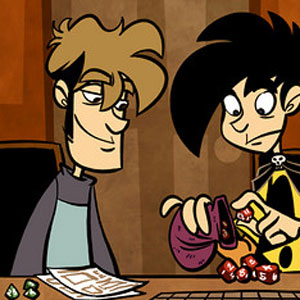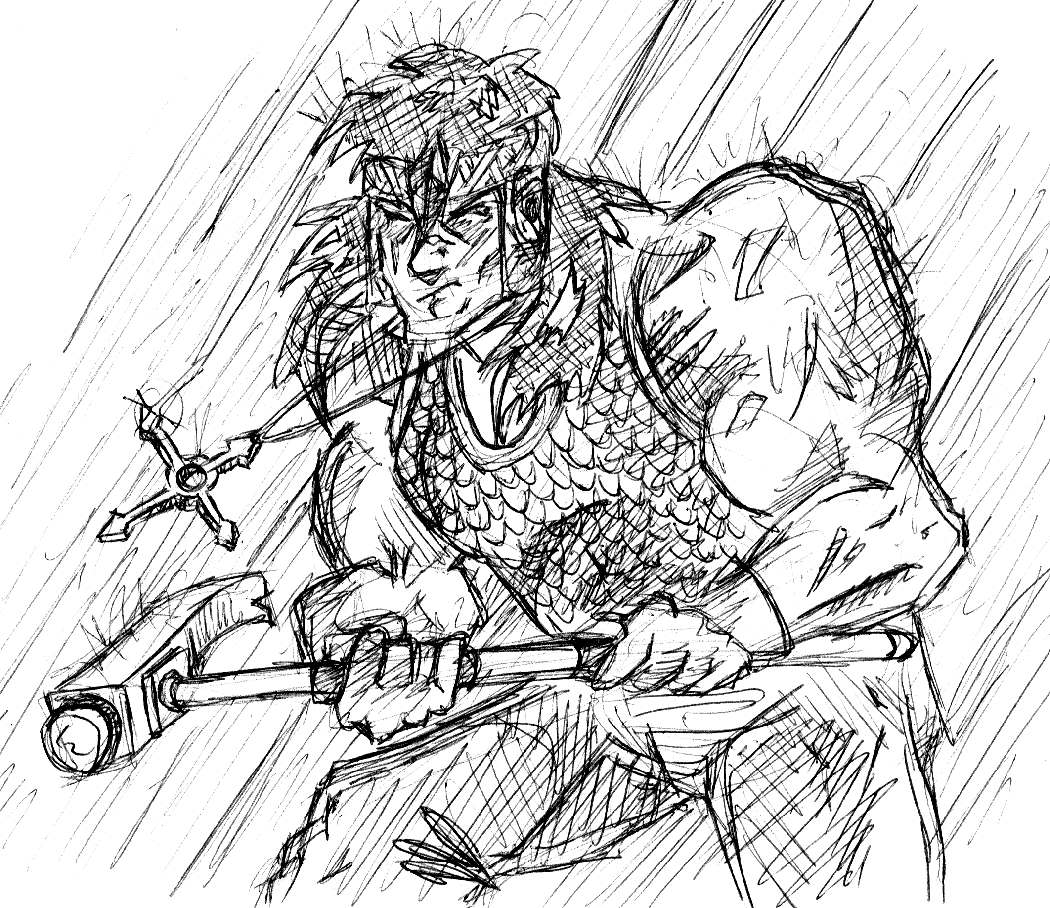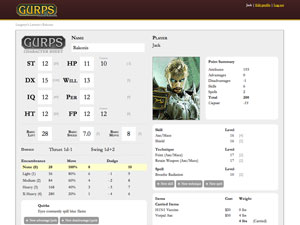Why I roleplay
My darkest secret was recently revealed at a dinner party: I'm a roleplayer. When asked why, I said I had an answer but it was a long one. Here it is.
It began sweetly enough. Surrounded by good friends, my wife felt comfortable to admit her sci-fi snobbery. Her highbrow literary inclinations had prevented her from enjoying anything containing even a hint of dragons or spaceships. That much is forgivable. Her regret came from the accompanying knee-jerk derision of those with less discerning taste. She was over that now and she thanked her husband (me) for showing her the light.
Then she dropped the RP-bomb.

Since high school, I've kept the fact that I roleplay secret to escape the scrutiny of those less understanding than my wife. Despite being in good company with paragons of manliness Vin Diesel and Stephen Colbert confessed players of Dungeons & Dragons, anti-intellectuals and actual intellectuals alike manage to find personal defect with pretending to be someone else.
Here's why I'm willing to withstand their disapproval.
Friendship
At its heart, roleplaying is no different than poker. It's a group of friends getting together, sitting around a table, and mixing skill with chance to create a fun atmosphere to enjoy one another's company. Perhaps better men than I can simply "catch up" but most require an activity at hand to ostensibly occupy their attention so that they might excuse the wastefulness of bonding with friends. See also: watching sports, working on cars, knitting.
I've also roleplayed with the same group of friends since 5th grade. We've jumped from system to system and lost a member or two along the way but the ritual has changed very little for the last 20 years. Now the experiences we've shared have become a collective library that in turn supports the friendship itself. In casual conversation, we reference past adventures to describe our take on current relationships or world events—much to the chagrin of anyone in earshot who doesn't speak our "language".
Creativity

Roleplaying also provides a blank canvas to pursue a variety of creative endeavors. It's not unique in this aspect, considering the spectrum of videogame cosplayers to fan fiction authors, but undeniably stands alone in terms of breadth. Roleplaying is a bottomless void that provides endless raw material for anything else you want to do.

High school was filled with countless drawings of characters and locations, improving my technique with every menacing portrait or breahtaking vista. Eventually, I went to college for fine art. In my adult life, it helps me push my professional edges. When I wanted to teach myself Ruby on Rails with a side project, I wrote a roleplaying web app. In recent months, I dove into HTML5's Canvas in order to stay at the cutting edge of my field (and the JavaScript library I wrote to draw hex maps is just a useful byproduct).
An entire series of fantasy novels is based on a world the author originally conceived for roleplaying.
In a world where we're constantly encouraged to "think outside the box," roleplaying pushes you to create the box itself. Discontent with off-the-shelf adventures, my friends have always baked our roleplaying worlds from scratch (leading to some really weird ones, like a dimension ruled by intelligent rubber bands). These worlds have required researching geography, religion, government, infantry tactics, time dilation due to special relativity, and of course narrative structures in which the audience is also co-author.
I know—for a fact—that roleplaying has helped me score higher on at least one biology test.
Perspective
Notice that I haven't even gotten to the playing itself.
Many of the same benefits it offers when used in psychotherapy, roleplaying affords to its players. Most prominently this is seeing things from someone else's perspective, but experiencing your own perspective from a distance can be just as useful.
When I am playing a character, I use that opportunity to explore an issue that I'm going through myself. When I left the state for college while my friends remained back home, my character was an estranged wizard unable to translate his newly learned spells into something his companions found useful. When I worked for an environmental non-profit constantly butting heads against intransigent corporations, my character was a religious fanatic with a passionate but entirely unquestioned worldview.
Although D&D famously has a "Dungeonmaster" who runs the adventure, most games are content with "Gamemaster".
On the other side of the table, I have a chance to delve into more worldly issues. During the invasion of Iraq in 2003, the players were insurgents resisting the occupation of their homeland. Questions like "Is an enemy soldier inherently innocent or complicit?" and "Would we rather have peace or revenge?" came up all the time. The current adventure that I'm running has the players as citizens of the fantasy-standard "Evil Country to the North". The tyrant has been overthrown and the people are trying to forge the path to a benevolent democracy... but old habits die hard and staying alive takes precedence.
According to the RGFA Threefold Model of roleplaying theory, all this would make me a "Simulationist". I enjoy immersing myself in fully-realized characters or worlds and then playing them as realistically as possible. That way I can attempt potential resolutions to personal or global conflicts at which I myself am unable (or unwilling) to fail. Contrary to criticisms of roleplaying being pure escapism, for me it's always been a way ultimately to learn something about myself.
Game on.